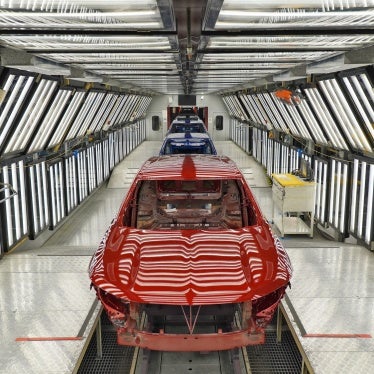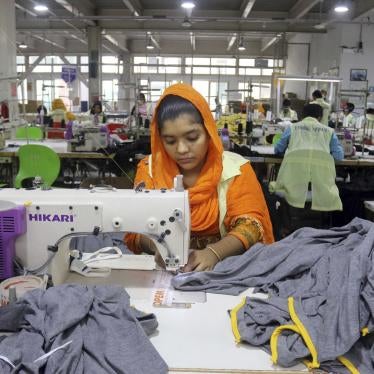Over the past year, Human Rights Watch has investigated forced labor in Xinjiang, a region in northwestern China where Chinese government labor transfer programs coerce Uyghurs and other Turkic Muslims away from their homes and into jobs in factories and warehouses. Uncovering the products and materials linked to forced labor, from the aluminum in cars to the polysilicon in solar panels, that enter undetected into global supply chains is extremely challenging.
The difficulties around this work underscore why a new European Union law banning imports and exports linked to forced labor needs specific measures to tackle state-imposed forced labor.
The combination of government-led forced labor and broader state repression and surveillance in Xinjiang severely limits access to the region and makes it impossible to safely interview workers. Human Rights Watch investigators instead spent months pouring over thousands of webpages to find evidence of companies’ participation in labor transfers. But Chinese internet censorship is making even this research increasingly difficult.
The European Parliament’s version of the proposed law would empower the European Commission to identify particular economic sectors in specific areas (for example, aluminum from Xinjiang) where there exists a high risk of state-imposed forced labor. Companies under investigation for importing products from these sectors and areas into the European Union would have to demonstrate they were not produced with forced labor.
EU governments have so far resisted the European Parliament’s proposal and included only fleeting references to state-imposed forced labor in their own version of the law. Under that version, regulators would only target individual products for investigation rather than classifying broader categories of products in Xinjiang or other regions as at high risk of forced labor. Given the vast number of products produced with state-imposed forced labor and the difficulty in obtaining information from Xinjiang, this would severely undermine the law’s effectiveness.
Thirty-three civil society organizations and trade unions, including Human Rights Watch, wrote to EU governments on February 5 to urge them to adopt measures to address state-imposed forced labor and other key changes to the law.
European governments should ensure passage of a robust forced labor law that effectively addresses state-imposed forced labor.











